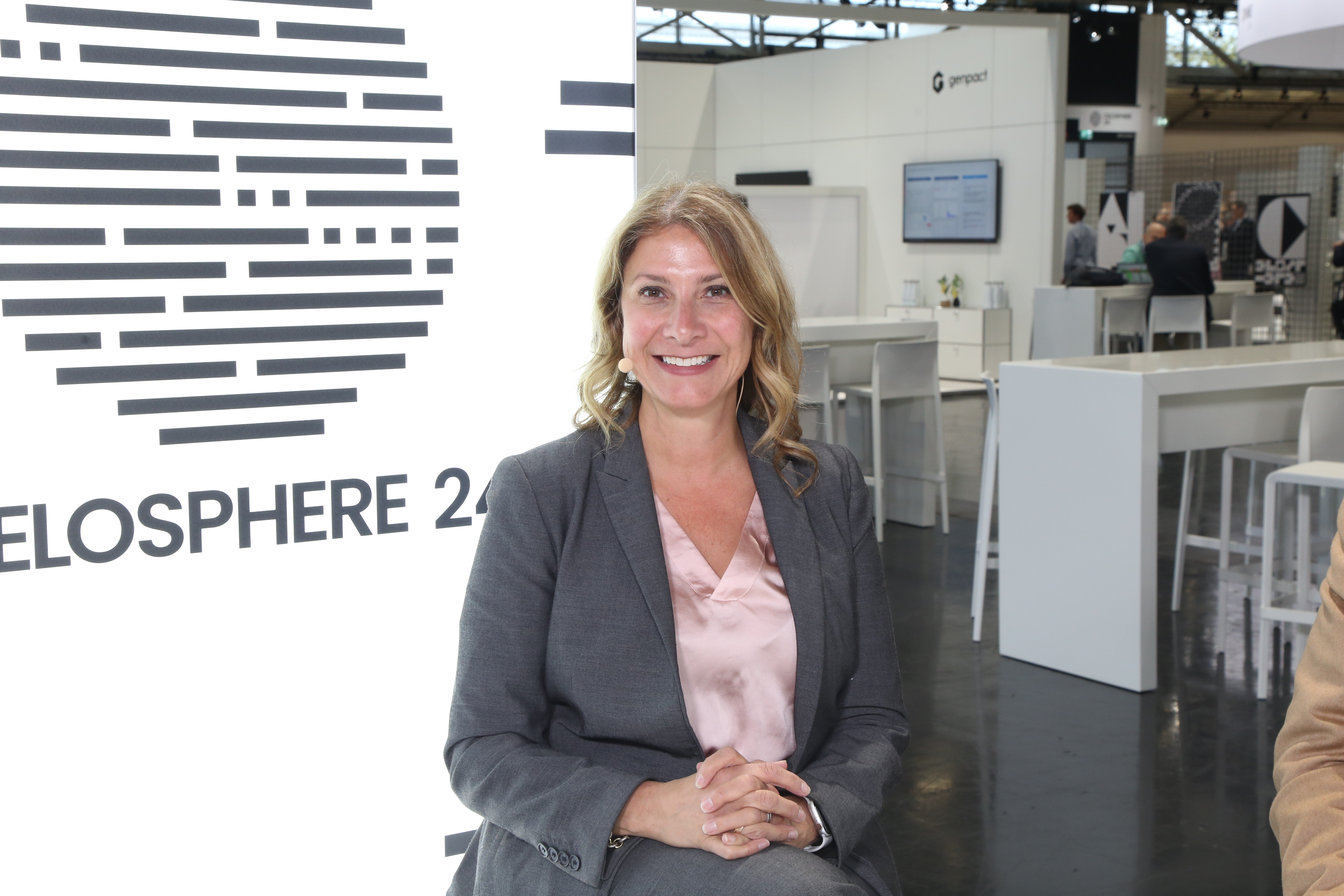 AI
AI
 AI
AI
 AI
AI
As enterprises navigate the rapid shift toward AI-driven business solutions, enterprise process intelligence has become essential for cohesive data integration. Process intelligence is increasingly recognized as a key enabler in optimizing complex workflows and unifying data systems across industries, supporting a more connected and efficient operational landscape.
Celonis SE’s evolving capabilities reflect the industry-wide emphasis on actionable data insights and operational transparency. Through enhancements aimed at reducing data silos and streamlining core processes, the company highlights the potential for AI and enterprise process intelligence to create more responsive and cohesive business environments.
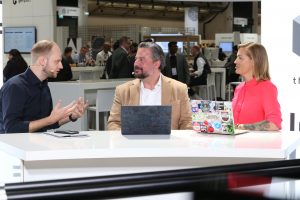
Celonis’ Alex Rinke talks with theCUBE about platform versatility and scalability, as well as sustainability challenges.
“We always say there’s no AI without process intelligence, especially on the enterprise side,” Alex Rinke, co-founder and co-chief executive officer at Celonis SE, told theCUBE during the event. “What’s the difference between AI and enterprise AI? Each enterprise is different, [with] proprietary processes, customer relationships and vendor relationships, and it’s all scattered across systems.”
During the Celosphere24 event, theCUBE Research’s Rob Strechay, George Gilbert and Savannah Peterson provided exclusive coverage on theCUBE, SiliconANGLE Media’s livestreaming studio. Discussions centered on the company’s latest platform innovations and how Celonis customers are unlocking more value, from efficiency gains to reduced costs to improved sustainability. (* Disclosure below.)
Here are three key insights you may have missed from theCUBE’s coverage:
Celonis has introduced new tools enterprise process intelligence tools designed to create real-time, interconnected data flows, aiming to turn process data into actionable insights that optimize operations at scale, according to Rob Strechay, managing director and principal analyst at theCUBE Research. By integrating AI with process intelligence, Celonis aims to turn process data into actionable insights that optimize operations at scale. This evolution aligns with the industry’s shift toward making AI a fundamental, scalable layer in business infrastructures, providing a single adaptable source of truth that drives transformation.
“I think what we’ve all been saying this week has been the fact that having that process intelligence and being able to understand this is how the agent needs to work is really a key,” Strechay said in an analyst segment during the event. “I think that [what] became very enlightening to me that this is not about, ‘Hey, yes, you have to get your processes down, and if you don’t do this first and you don’t understand that first, you are going to fail at AI.’ And that, to me, is a key.”
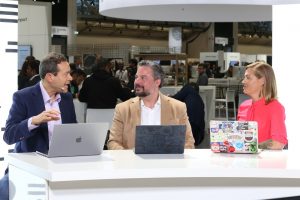
TheCUBE Research’s George Gilbert, Rob Strechay and Savannah Peterson talk about how integrating AI and process intelligence is streamlining processes and reducing inefficiencies.
This integration of AI and enterprise process intelligence is essential in enhancing business efficiency and tackling industry challenges, according to Gilbert, who weighed in during the same analyst segment. By connecting legacy systems with modern infrastructures, AI-driven insights enable companies to optimize operations proactively.
“For the first time in 50 or 60 years … we’re now going to start tracking processes,” Gilbert said. “To your point that it’s easier to implement … you pull the information about the things out of these old systems, and they mine them, and then it flows into this process intelligence. Then, you can optimize these engine processes.”
The introduction of Celonis Networks highlights the company’s commitment to transparency by connecting disparate data sources and automation systems to form a cohesive view of operations, according to Gilbert.
“The Celonis value proposition is that we can build a single source of truth across these islands of automation and data and then create a map of the business as it’s currently running,” Gilbert said during another analyst segment at the event. “That is a very high-value business proposition.”
Celonis also announced AgentC, a suite of AI tools aimed at eliminating data silos and optimizing core processes such as supply chain management, Peterson added during the same analyst segment. These advancements are designed to help enterprises harmonize operations more effectively.
“In the old days, [the] supply chain was like a game of telephone, [where] one person picks up the phone and says something to the other guy,” Peterson said. “What’s really interesting about Celonis … is not only are they eliminating that game of telephone, they are harmonizing it like a choir. Everyone participating in that harmony is all speaking the same language, and that is the big difference.”
Here’s theCUBE’s complete video analysis with George Gilbert, Rob Strechay and Savannah Peterson:
Real-time process optimization and data-driven strategies are at the center of AI adoption, driven by the need for enterprise process intelligence, according to Manu Haug, field chief technology officer of Celonis. Integrating advanced AI tools allows companies to map and analyze workflows, shifting from theoretical models to actionable strategies that enable alignment with dynamic market needs.
“I think what we see most is if you look at [large language models], what they’re doing … they’re just fundamentally lowering the barrier,” Haug told theCUBE during the event. “You have the same information as before, but before that, you needed an absolutely super duper expert to help you solve the problem. Now you have access to a technology that actually makes it possible … to optimize.”
Celonis emphasizes platform flexibility to meet diverse industry needs, according to Rinke. The company develops solutions that offer specific use cases for systems such as supply chains and customer management.
“We have a generic model … but we want to make it easier for any industry and any process to get Celonis and get value out of the box,” Rinke told theCUBE during the event. “We [also] have apps for specific use cases like accounts receivables [or] like supply chains that are quite horizontal.”
Sustainability is also a core focus for Celonis, especially for industries with high environmental impacts. This is a challenge for many organizations, but also an opportunity to drive change and action, Rinke noted, citing a customer that used the Celonis platform to monitor its carbon output across its supply chain.
“There’s a lot more that’s inspiring our customers, our people and everybody to drive positive change across all these dimensions, and there’s going to be more,” he said.
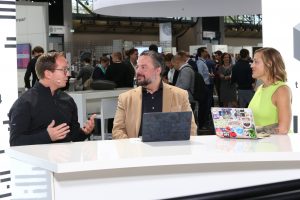
Celonis’ Carsten Thoma talks with theCUBE about how the company is moving up the tech stack to enable business processes.
Celonis’ evolution from process mining to a comprehensive enterprise process intelligence platform augments its commitment to adaptability and sustainability, according to Carsten Thoma, president of Celonis. The launch of Process Sphere in 2022 marked a significant step forward in object-centric mining, allowing organizations to manage interconnected processes more efficiently.
“We consider ourselves change-makers,” Thoma said in an interview during the event. “At one point in time, and I’ve seen those examples, there used to be a lot of innovation over the decades. But at one point, it was also very clear that processes got retrofitted into systems to fit. And, on a certain level, it’s time to liberate the processes a little bit. It’s Process Independence Day at Celosphere.”
Integrating automation strategies into AI platforms is vital for boosting return on investment, according to Divya Krishnan, vice president of product marketing at Celonis. Embedding agentic AI and intelligent automation supports proactive workflow refinement, delivering measurable outcomes.
“People have been putting a lot of good time, energy, effort and money into [robotic process automation], into backend automation and into complex workflows,” Krishnan told theCUBE during the event. “The question is how do you optimize that, and then how do you bring agents to play to really dramatically increase the ROI that you can get from all the investments that you’re putting in?”
Here’s theCUBE’s complete video interview with Alex Rinke:
Organizations across sectors are using enterprise process intelligence to enhance strategic innovation, streamline workflows and boost operational efficiency. Celonis’ process mining tools help companies optimize processes, reduce bottlenecks and cut costs.
In the automotive sector, BMW Group has integrated process mining to advance efficiency and sustainability, according to Patrick Lechner, head of process mining and robotic process automation at BMW Group. By optimizing engineering, production and customer support processes, BMW gains transparency and agility to maintain its competitive edge.
“At BMW, we saw that only with optimal processes can we win, [that] we can be the leader in our field,” Lechner told theCUBE in an interview. Therefore, it’s really crucial to combine data and processes in the best possible way. We’ve really managed to do that in the last couple of years.”
The State of Oklahoma uses Celonis technology to modernize government audits, eliminating data silos and reducing lengthy audits to daily routines, according to Janet Morrow (pictured), director of risk, assessment and compliance for the Office of Management and Enterprise Services at the State of Oklahoma.
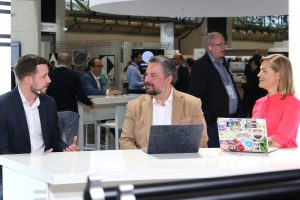
Daniel Hayes of NHS England talks with theCUBE about how AI and process mining could benefit the healthcare system on a national scale.
“Prior to us implementing Celonis and utilizing this tool, we got about eight audits done a year with a team of six, and it would be two to three years post-purchase before those audits were complete,” Morrow told theCUBE during the event. “Now, we’re doing it live every day, and it’s automated. We only see the things that cause concern, and then we reach out to those agencies and those buyers to talk through it.”
In healthcare, England’s National Health Services employs process mining to improve patient care by adjusting communication strategies based on appointment attendance, according to Daniel Hayes, national lead of data-driven productivity for elective care at NHS England. This proactive approach underscores AI and process mining’s potential to address systemic healthcare challenges on a national scale.
“Process mining allowed us to see that if you had an appointment tomorrow, we would send you a text message today,” Hayes told theCUBE during the event. “Invariably, patients wouldn’t turn up tomorrow … by looking at [the] reaction, we were able to move our communication with our patients to day 14 prior to their appointment and day four. We started to see that people were turning up and being more honestly engaged with the organization.”
In the consumer goods sector, Reckitt Benckiser Group PLC has adopted Celonis’ process intelligence platform to enhance operational efficiencies across finance, compliance and supply chain management, according to Kuldeep Dudeja, IT and digital director of intelligent automation and process mining at Reckitt. Initially focused on finance, Reckitt expanded the enterprise intelligence platform to other critical areas, seeing significant ROI and profitability improvements.
“We were able to even drive our cost to serve, which is helping us to drive our [profit and loss] benefits on the books,” Dudeja told theCUBE during the event. “On the ROI side … we already announced that we are in triple digits of a million benefits realized.”
Here’s theCUBE’s complete video interview with Kuldeep Dudeja:
To watch more of theCUBE’s coverage of the Celosphere24 event, here’s our complete event video playlist:
(* Disclosure: TheCUBE is a paid media partner for Celosphere 24. Neither Celonis, the sponsor of theCUBE’s event coverage, nor other sponsors have editorial control over content on theCUBE or SiliconANGLE.)
Support our mission to keep content open and free by engaging with theCUBE community. Join theCUBE’s Alumni Trust Network, where technology leaders connect, share intelligence and create opportunities.
Founded by tech visionaries John Furrier and Dave Vellante, SiliconANGLE Media has built a dynamic ecosystem of industry-leading digital media brands that reach 15+ million elite tech professionals. Our new proprietary theCUBE AI Video Cloud is breaking ground in audience interaction, leveraging theCUBEai.com neural network to help technology companies make data-driven decisions and stay at the forefront of industry conversations.